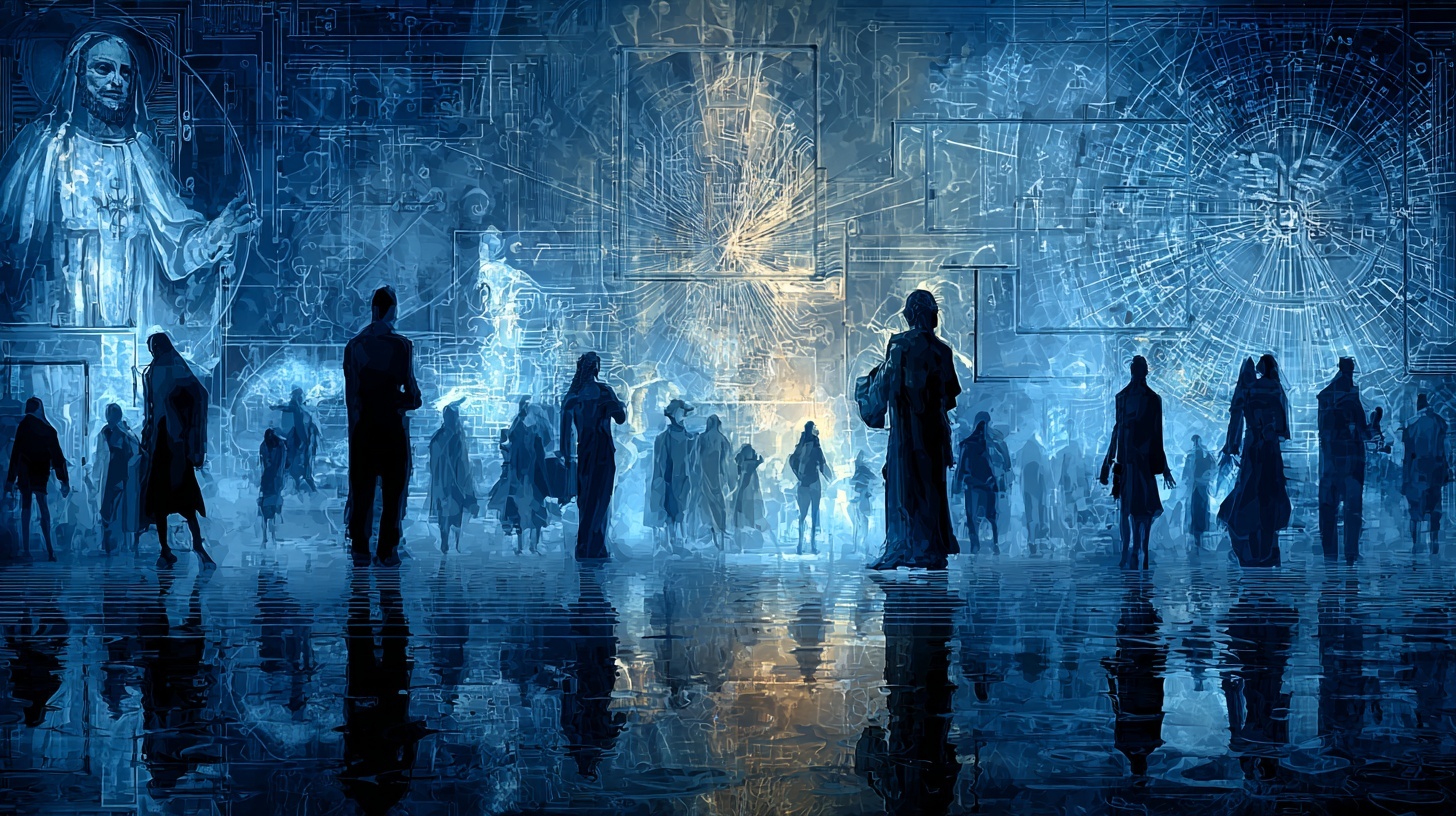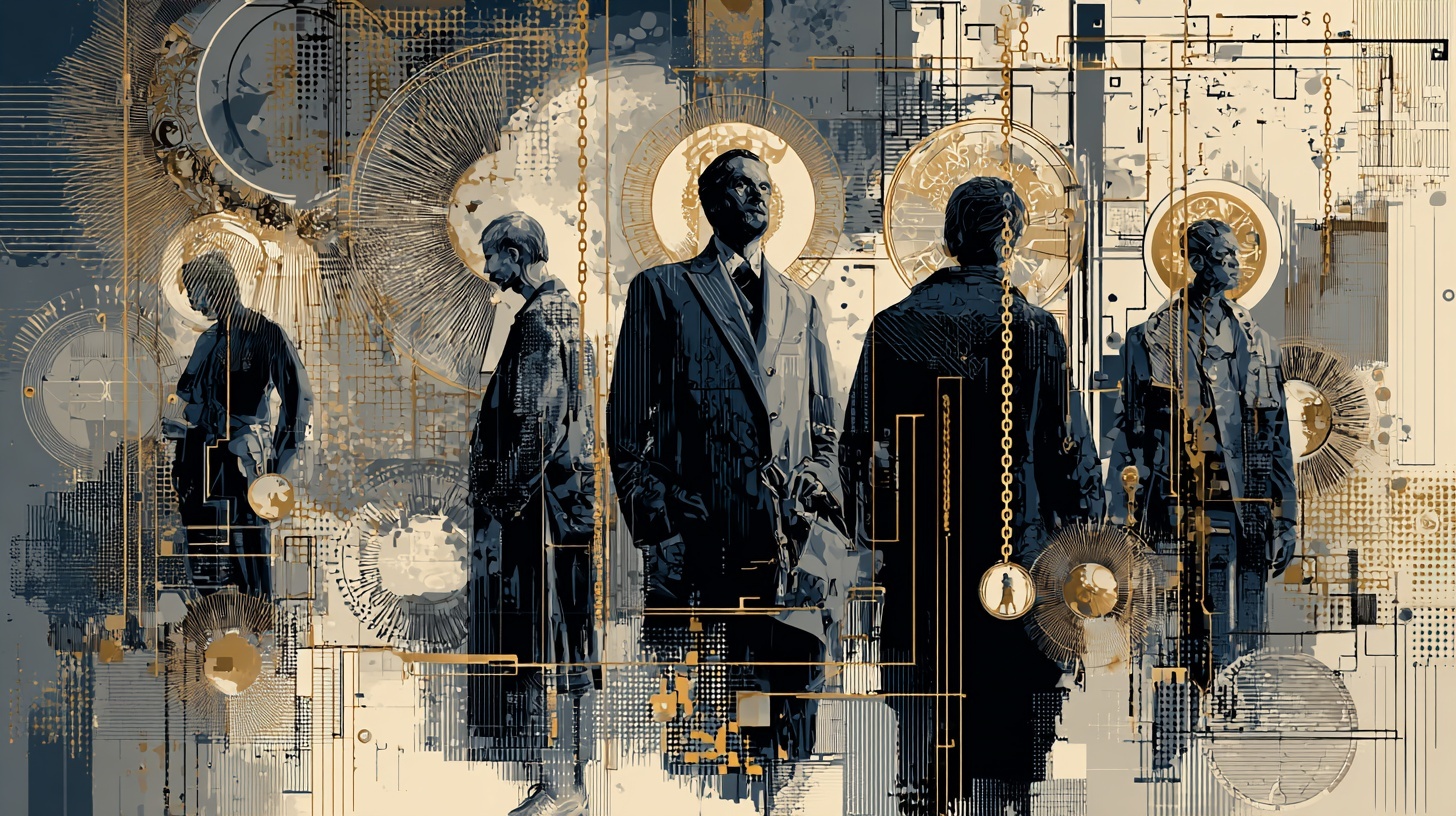霊的依存症候群:権威崇拝と精神的勝利法の構造分析
Introduction: The Pathology of Contemporary Spirituality
In the 21st century spiritual landscape, we are witnessing a fascinating paradox. While surface rhetoric promotes "spiritual freedom" and "individual awakening," a rapidly increasing number of individuals are actually falling into profound dependency structures. I define this phenomenon as "Spiritual Dependency Syndrome" and attempt to provide a structural analysis of its mechanisms.
At the core of this syndrome lies a mechanism strikingly similar to the "spiritual victory method" (精神的勝利法) depicted by Chinese literary master Lu Xun in "The True Story of Ah Q." However, the contemporary version has evolved into a more complex and harder-to-detect form within our digitized information environment and diversified authority structures.
Basic Structure of the Syndrome
First Layer: Concealment of Cognitive Contradictions
Patients with Spiritual Dependency Syndrome simultaneously hold two seemingly contradictory beliefs:
- Surface Belief: "I make spiritual choices based on free will"
- Deep Reality: Complete dependency on specific authority figures' teachings
To resolve this contradiction, they perform sophisticated cognitive manipulation. They reinterpret the authority's teachings as "resonance with their inner wisdom," thereby experiencing dependency as independence.
Second Layer: Authority Hierarchization and Selective Submission
Modern spiritual dependents characteristically maintain multiple authority sources, such as:
・Economic success figures (wealthy entrepreneurs, investors, etc.)
・Religious leaders (Ajari, Gurus, Channelers, etc.)
・Academic authorities (psychologists, quantum physicists, etc.)
・Social media influencers (spiritual YouTubers, etc.)
Crucially, their attitude toward these authorities is non-uniform. While showing absolute submission to their chosen authorities, they violently reject other authorities or critical opinions. This selective submission is a characteristic symptom of the syndrome.
Third Layer: Modern Evolution of Spiritual Victory Methods
While Lu Xun's Ah Q converted personal humiliation into spiritual victory, the modern version possesses a more organized and social structure. By making "spiritual victory declarations" in the public space of social media, they gain approval from sympathizers and strengthen the reality of their victories.
Case Study: Typical Onset Patterns
Initial Stage: Entry into Spiritual Seeking
In most cases, spiritual seeking begins triggered by personal crises (unemployment, heartbreak, health problems, etc.). At this stage, healthy critical thinking comparing various teachings is maintained.
Middle Stage: Formation of Authority Dependency
They experience a "fateful encounter" with specific teachers or teachings, gradually abandoning critical thinking. During this process, the following justification mechanisms operate:
- Faith in "intuitive understanding beyond reason"
- Acceptance of the doctrine that "criticism is evidence of low consciousness level"
- Internalization of self-responsibility theory that "inability to fully understand is due to insufficient practice"
Late Stage: Syndrome Completion
Dependency on authority becomes fully established, with the following characteristic behavioral patterns observed:
- Absolutization of authority's words and dogmatic interpretation
- Excessive defensive reactions to criticism
- Rationalization of real failures as "spiritual trials"
- Aggressiveness in missionary activities toward others
Digital Age Amplification Factors
Enhanced Echo Chamber Effects
Social media algorithms connect users with homogeneous information and values. This allows spiritual dependents to continuously reinforce their beliefs without encountering critical opinions.
Instant Approval Systems
The "like" function provides immediate approval for spiritual victory declarations. The pleasure of this approval deepens dependency and tends to drive toward more extreme statements.
Confusion from Authority Democratization
Traditional religious authority structures have collapsed, and anyone can now claim to be an "awakened one" or "master." While this democratization of authority has brought freedom, it has also created confusion in judgment criteria.
Considerations for Therapeutic Approaches
Dangers of Direct Criticism
As Lu Xun pointed out, direct criticism of severe spiritual victory method patients risks worsening symptoms. Being criticized triggers stronger defense mechanisms, leading to more serious reality escape.
Need for Structural Intervention
Rather than treating this as individual pathology, it needs to be understood as a problem of the entire social system. The following structural changes are required:
- Educational System Reform: Foster both critical thinking and spiritual sensitivity
- Media Literacy Improvement: Develop abilities to determine the authenticity of spiritual authorities
- Community Reconstruction: Create spaces that enable healthy spiritual dialogue
Popularizing the Concept of "Soul Sovereignty"
Most importantly, we need to popularize the concept of "Soul Sovereignty." This is the philosophy that assigns the ultimate authority for spiritual judgment and decisions not to external authorities, but to individual inner wisdom.
However, this must be distinguished from dogmatic judgment. True soul sovereignty is the ability to critically examine various information and perspectives, making decisions under one's own responsibility.
International Perspectives
Cultural Background Influences
The onset patterns of Spiritual Dependency Syndrome vary according to cultural backgrounds. Attitudes toward authority, the balance between individualism and collectivism, and evaluations of critical thinking all influence how the syndrome manifests.
Globalization-Driven Spread
Through the internet, spiritual authorities born in specific regions can instantly influence the entire world. This phenomenon creates new problems of imposing uniform spiritual practices that ignore cultural contexts.
Prevention and Countermeasure Recommendations
Individual-Level Countermeasures
- Ensuring Diversity: Avoid dependence on single information sources
- Regular Self-Verification: Check consistency between beliefs and actions
- Practice Critical Dialogue: Engage in constructive dialogue with those holding different opinions
- Healthy Distance from Authority: Distinguish between respect and blind obedience
Social-Level Countermeasures
- Spiritual Consumer Protection: Legal regulation of malicious spiritual commerce
- Research Institution Establishment: Promote scientific research on spiritual phenomena
- Public Education Integration: Introduce religious literacy education
- Professional Training: Develop counselors capable of addressing spiritual issues
Conclusion: Pathways to Hope
Spiritual Dependency Syndrome is indeed a serious contemporary pathology. However, by recognizing and structurally understanding this problem, pathways to solutions become visible.
The key is not to criticize individuals, but to improve the system as a whole. And just as Lu Xun analyzed Chinese society's spiritual pathology with love, we too need to seek constructive solutions while maintaining a warm gaze toward contemporary spiritual problems.
True spiritual growth lies in liberation from dependency on external authorities and establishing trust in inner wisdom. While this journey is never easy, by each individual establishing soul sovereignty, we can build a healthier and richer spiritual culture.
"The ultimate authority must always remain with the individual's own reason and critical analysis, even when venturing into matters of the heart." - Dalai Lama
Our era's challenge is to integrate scientific critical thinking with deep spiritual insight. These two are not opposing forces, but should function as twin wheels driving toward true wisdom.

